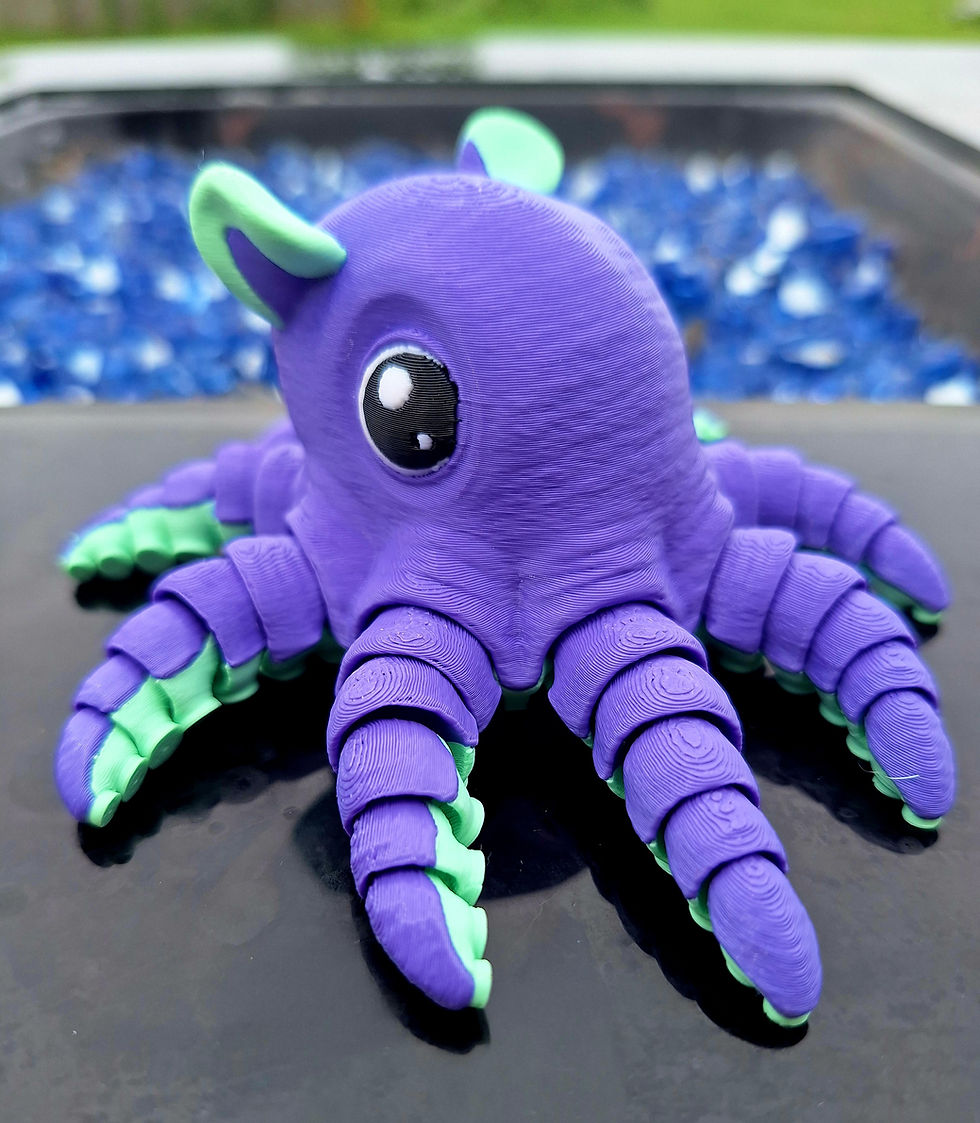🌈 The Different Faces of Neurodivergence: Autism, ADHD, Dyslexia, SPD & More
- WeBe Sensory

- Jun 30, 2025
- 3 min read

No two brains are alike—and that’s a beautiful thing.
The word neurodivergent is more than just a trending term. It’s a recognition that brains come in all kinds of wiring. For many, discovering they or their child is neurodivergent is like finding the missing piece of a lifelong puzzle. Suddenly, things make sense.
But what does it really mean to be neurodivergent? And what kinds of neurodivergent identities are out there?
Let’s take a look at some of the most common—and often misunderstood—faces of neurodivergence.
🧩 Autism Spectrum Disorder (ASD)
Autism is a developmental difference in how a person communicates, experiences emotions, and processes the world around them. Autistic people may:
Have strong sensory preferences or sensitivities
Communicate differently (nonverbal, echolalia, scripting, etc.)
Prefer routines and predictability
Experience social interaction in unique ways
Deeply focus on specific interests (aka “special interests”)
💡 Autism is not a disorder to fix—it’s a neurotype to understand. Autistic people are creative, curious, and capable. Their needs may be different, but so are their strengths.
⚡ Attention Deficit Hyperactivity Disorder (ADHD)
ADHD is often oversimplified as “can’t sit still” or “easily distracted.” But it’s so much more. ADHD is about executive function—how the brain plans, organizes, starts, and finishes tasks. People with ADHD might:
Struggle with focus or hyperfocus
Feel restless, impulsive, or emotionally intense
Have time blindness or difficulty managing routines
Be creative, energetic, and outside-the-box thinkers
ADHD isn’t about laziness—it’s a brain wired for stimulation and novelty. With the right supports, ADHDers thrive.
📚 Dyslexia
Dyslexia is a language-based learning difference that affects reading, spelling, and writing. It has nothing to do with intelligence. People with dyslexia often:
Struggle with decoding written words
Mix up letters or sounds
Excel in visual thinking, storytelling, and big-picture ideas
Have brilliant minds that just need alternative paths to literacy
🧠 Fun fact: Many inventors, entrepreneurs, and artists are dyslexic. They just needed someone to teach them in ways that made sense to their brains.
🖐️ Sensory Processing Disorder (SPD)
SPD means the brain has trouble organizing sensory information. For someone with SPD, lights may feel too bright, tags too itchy, noises too loud—or they may not notice input at all. People with SPD may:
Avoid certain textures, sounds, or smells
Seek sensory input by jumping, crashing, or chewing
Feel overwhelmed in noisy or crowded environments
Have meltdowns or shutdowns in response to sensory overload
SPD often co-occurs with autism or ADHD, but it can also exist on its own. Sensory tools and routines can make a huge difference.
💬 Other Forms of Neurodivergence
Neurodivergence is broad, and the list is ever-growing as we understand more about the brain. Other neurodivergent identities may include:
Dyscalculia – difficulty with math and number-based thinking
Dyspraxia (Developmental Coordination Disorder) – affects movement and motor planning
Tourette Syndrome – involves motor or vocal tics
OCD (Obsessive-Compulsive Disorder) – intrusive thoughts and compulsions, often misunderstood
PTSD or C-PTSD – trauma-based neurodivergence that can affect regulation, memory, and sensory perception
🌱 What Neurodivergence Isn’t
It isn’t a weakness.It isn’t a flaw.It isn’t something that needs to be hidden or “fixed.”
It’s a part of human diversity—just like different skin tones, body types, or personalities. And the more we understand it, the more we can support and celebrate it.
💖 Final Thoughts: No One-Size-Fits-All Brain
Neurodivergence doesn’t always look the same. It can be loud or quiet, visible or subtle, diagnosed or self-identified. Some people are sensory seekers; others are avoiders. Some need structured routines; others need flexibility.
What matters most? Understanding, acceptance, and support.
At WeBe Sensory, we believe in celebrating every brain—because every brain belongs.
✨ Want to learn more or support a neurodivergent loved one?
Check out our WeBe Wonderbox™, a monthly sensory subscription filled with tools, fidgets, and resources designed to support neurodivergent individuals of all ages.
Let’s build a world where all kinds of minds are not just included—but embraced.



Comments